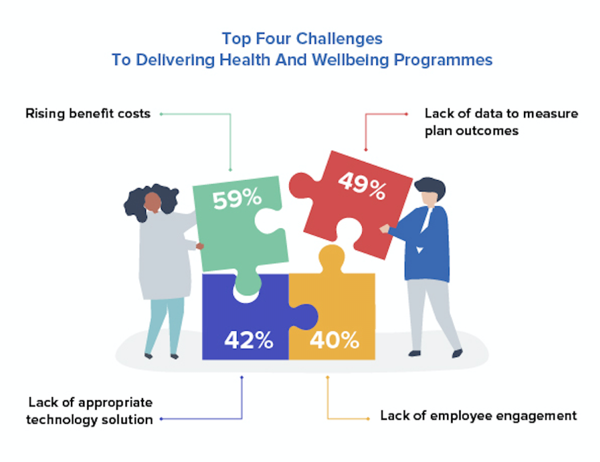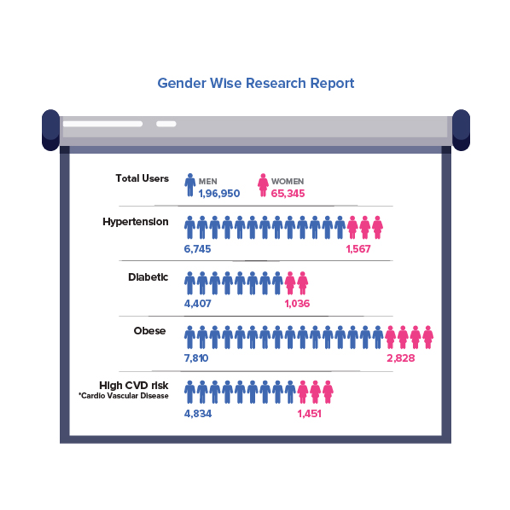Learn why leading HR professionals trust ekincare! Explore Now

Health insurance is one of the basic health basic benefits offered to employees. But when it comes to the health of the individual, insurance is reactive and only serves when someone is hospitalized for a major health ailment.
When we see the economic impact of chronic diseases, recent reports suggest the loss in national income for India due to heart disease, stroke, and diabetes during the period 2005 – 2015 is estimated to be more than $200 billion. In today’s scenario, where sedentary lifestyles adversely affect the health of the employees, wellness programs with a focus on the Preventive Healthcare model are a need of the hour.
Though a lot of organizations realize this need and have been investing heavily in corporate wellness programs, there has always been a gap in measuring and determining the ROI of these programs. A recent study conducted on Indian health and well-being by WTW listed rising benefits cost, lack of data, technology, and engagement as the top challenges for corporates in implementing administering health benefits.

As the rise in benefits cost and lack of data to measure outcomes are at the top of the charts, technology and data play a crucial role to counter these challenges. To counter these challenges, we help the HR function with necessary tools to collect data, plan health benefits and determine the ROI in a seamless manner.
Data is at the helm of any preventive healthcare solution and there is a tremendous amount of health data that is being generated every second, but there is no means of structuring that data. This is where we help organizations in digitizing and structuring the data, thus making it possible for them to create a preventive, predictive and highly personalized healthcare journey for employees. This will in turn nudge the employees towards a healthier lifestyle resulting in overall savings in healthcare costs for the organization.
Another major problem in incorporating healthcare programs is the personalization of health benefits for employees. For instance, if the below data is available to the HR function, one can easily comprehend the problematic areas and take necessary action.

Source: ekincare
Data here tells us that men are 42% more prone to Hypertension than women. So, wouldn't it make better sense to offer them a health coach program to manage their chronic conditions? Similarly, women are 10% more prone to obesity than men and in this case, a weight/nutrition management program would help immensely. To design such a flexible program and ensure its success, the key lies in tracking utilization and setting up limits on benefits for each employee and monitoring consumption. A back-end policy engine can help the HR to set up the same across all health benefits that are available through the platform.
Data is considered the new oil, but it’s only useful when it's refined. In order to reduce healthcare costs, it is important for corporates and insurance companies to standardize employees' health data from multiple sources, such as health checks, wearables, doctor consultations, etc. This would help in segmenting the population based on the potential risk of diseases, and in turn, help in taking preventive healthcare measures. Furthermore, it would help insurance companies in better underwriting.
Telemedicine is broadly defined as the remote delivery of healthcare services, such as health assessments or consultations over the telecommunications infrastructure. It plays a huge role in lowering healthcare costs. It has made 24*7 access to doctors on call/chat and has helped people in all spheres of life to save time and money. The provision of doctors to prescribe medication and the option of getting medicines delivered to the doorstep has drastically changed the way we look at healthcare.